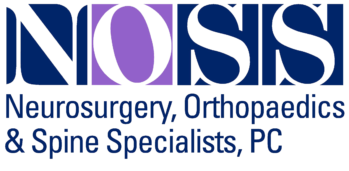The Power of Collaboration: Embracing a Multidisciplinary Approach in Neurosurgery
In the world of modern medicine, the complexities of neurological disorders demand a comprehensive and united front. Neurosurgery, a field at the forefront of medical innovation, has increasingly recognized the immense value of a multidisciplinary approach. Collaborating with various medical specialties isn’t just a trend; it’s a crucial strategy that enhances patient care, treatment outcomes, and the overall advancement of the field. In this article, we delve into the significance of embracing a multidisciplinary approach in neurosurgery.

The Nature of Neurological Disorders: A Call for Collaboration
Neurological disorders are intricate and multifaceted, often requiring insights from multiple medical disciplines to address the full scope of a patient’s condition. Conditions like brain tumors, spinal disorders, and neurovascular diseases present a unique set of challenges that demand diverse expertise. Neurosurgeons, while skilled in intricate surgical techniques, benefit greatly from the knowledge and skills of their colleagues in various fields.
A Spectrum of Expertise
When neurosurgeons collaborate with professionals from other medical specialties, a world of expertise opens up. Radiologists contribute their deep understanding of imaging techniques, providing precise diagnostic information that guides surgical planning. Neurosurgeons bring their understanding of the intricacies of the nervous system’s functioning, enabling a more nuanced approach to treatment. Orthopaedic surgeons bring their expertise in how bones, ligaments and tendons may be playing a role in the patient’s condition. Pain Management and rehabilitation specialists play a vital role in non-surgical and postoperative care, ensuring patients achieve optimal recovery outcomes.
Innovative Treatment Approaches
The fusion of different medical perspectives often leads to groundbreaking innovations. For instance, the collaboration between neurosurgeons and engineers has given rise to cutting-edge surgical tools and techniques. Robotics and minimally invasive procedures are direct outcomes of this interdisciplinary synergy. Moreover, when oncologists, radiation therapists, and neurosurgeons work together, they can devise comprehensive treatment plans for brain tumors that maximize efficacy while minimizing adverse effects.
Holistic Patient-Centric Care
A multidisciplinary approach places the patient at the center of care. By involving specialists from various fields, the focus shifts from isolated treatment modalities to a holistic understanding of the patient’s well-being. This approach takes into account not only the medical aspect but also the psychological and emotional needs of the patient. It addresses concerns about quality of life, mental health, and long-term outcomes, resulting in a more comprehensive and patient-centered care plan.
Education and Professional Growth
The multidisciplinary approach also cultivates a rich learning environment for healthcare professionals. Neurosurgeons gain insights into other medical disciplines, broadening their knowledge base and enhancing their problem-solving skills. Collaborative environments foster a culture of continuous learning, ultimately benefitting patients as doctors remain updated on the latest advancements.
Embracing Collaboration: The Path Forward
As the landscape of medicine evolves, so does our understanding of effective patient care. The integration of diverse medical perspectives not only optimizes treatment outcomes but also serves as a catalyst for innovation and progress. Neurosurgery, a field that deals with the complexities of the human nervous system, is a prime example of how collaborative efforts can redefine healthcare standards.
At NOSS, we’re committed to the principles of collaboration and multidisciplinary care. We believe that the combined expertise from various medical disciplines enhances patient outcomes and enhances the field of neurosurgery. By embracing collaboration, we embrace a future where patients receive the most comprehensive, compassionate, and advanced care possible. Together, we’re rewriting the narrative of neurological care, one collaborative step at a time.

